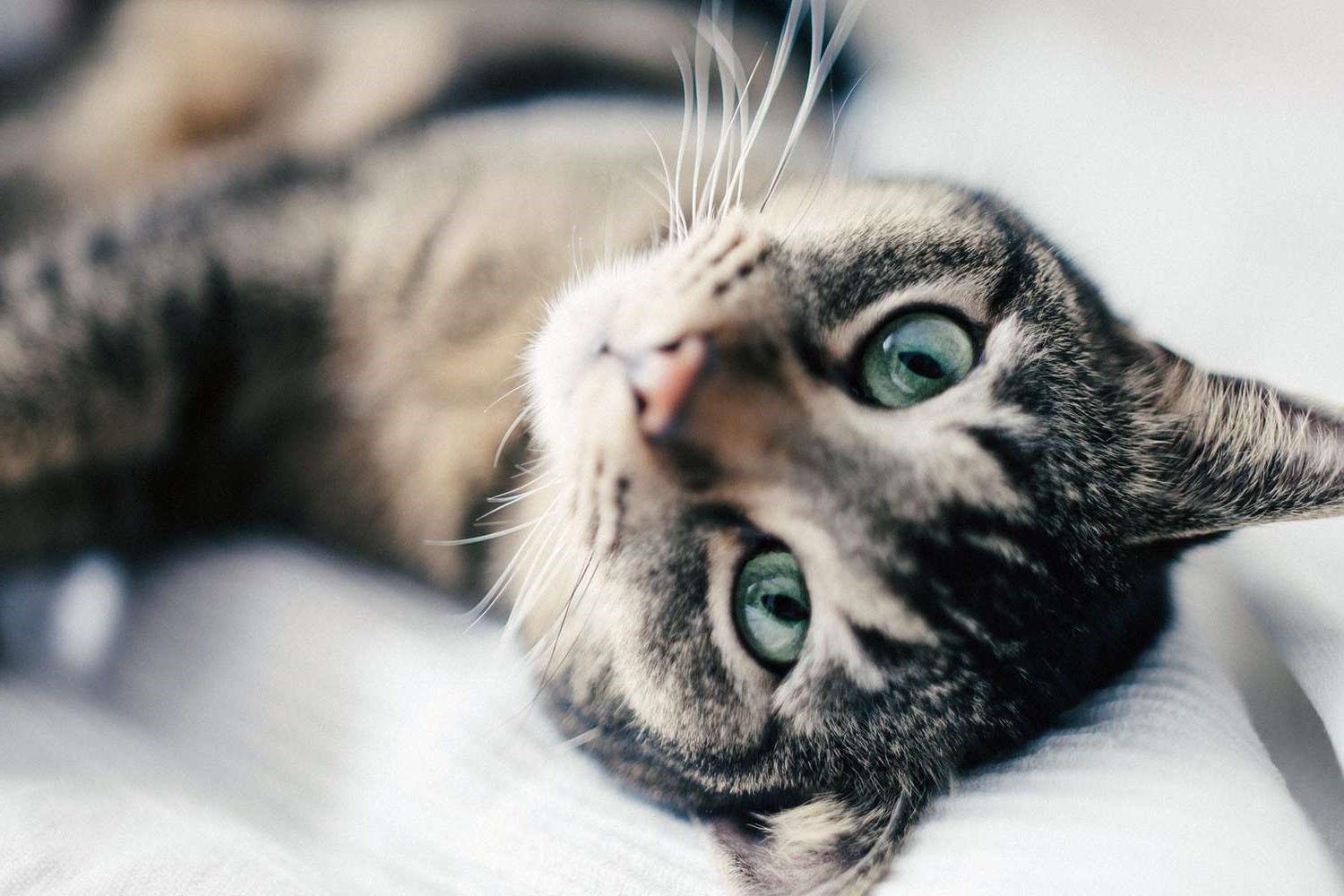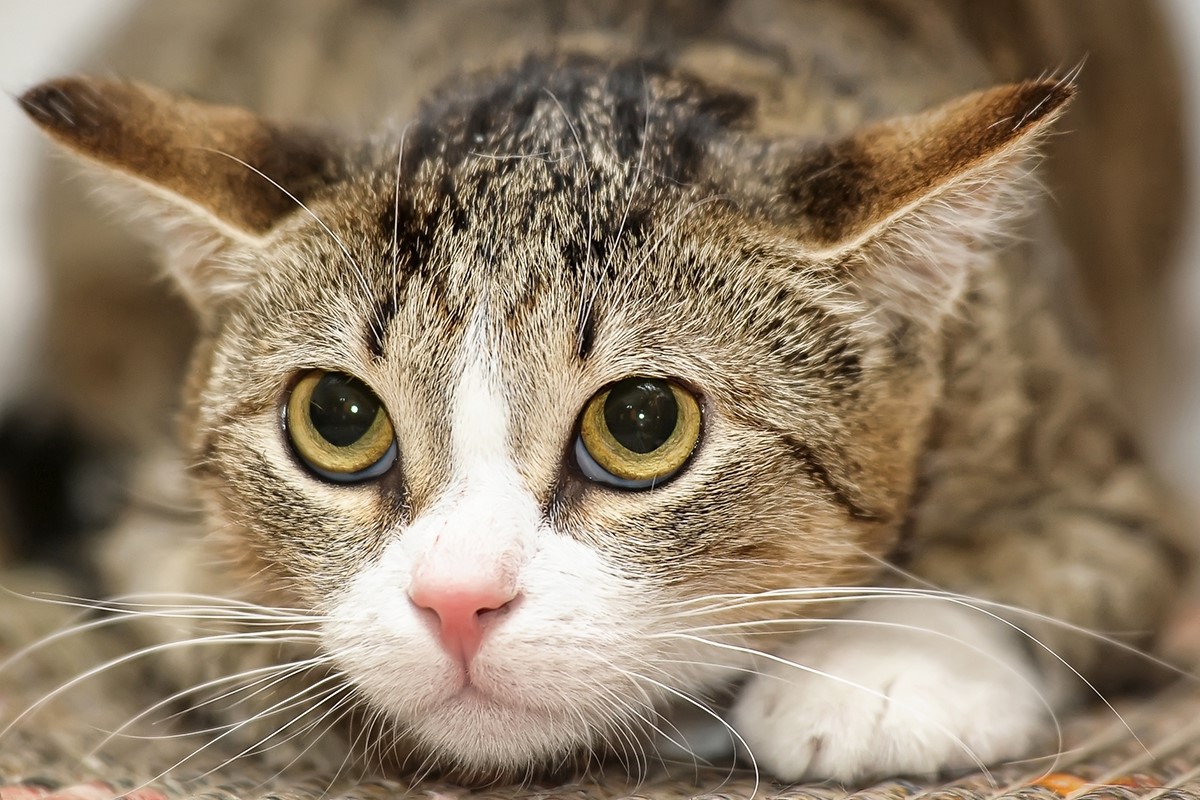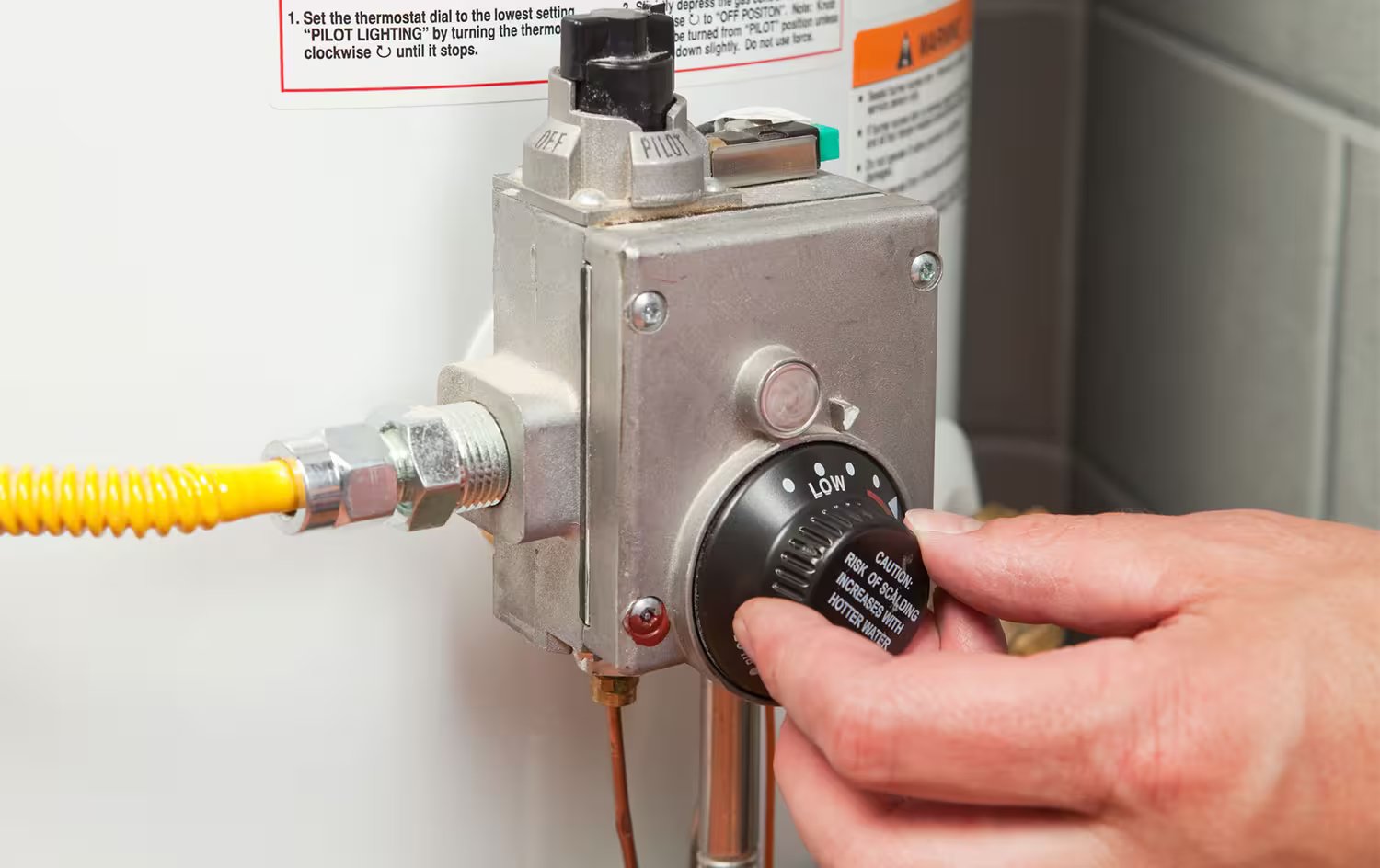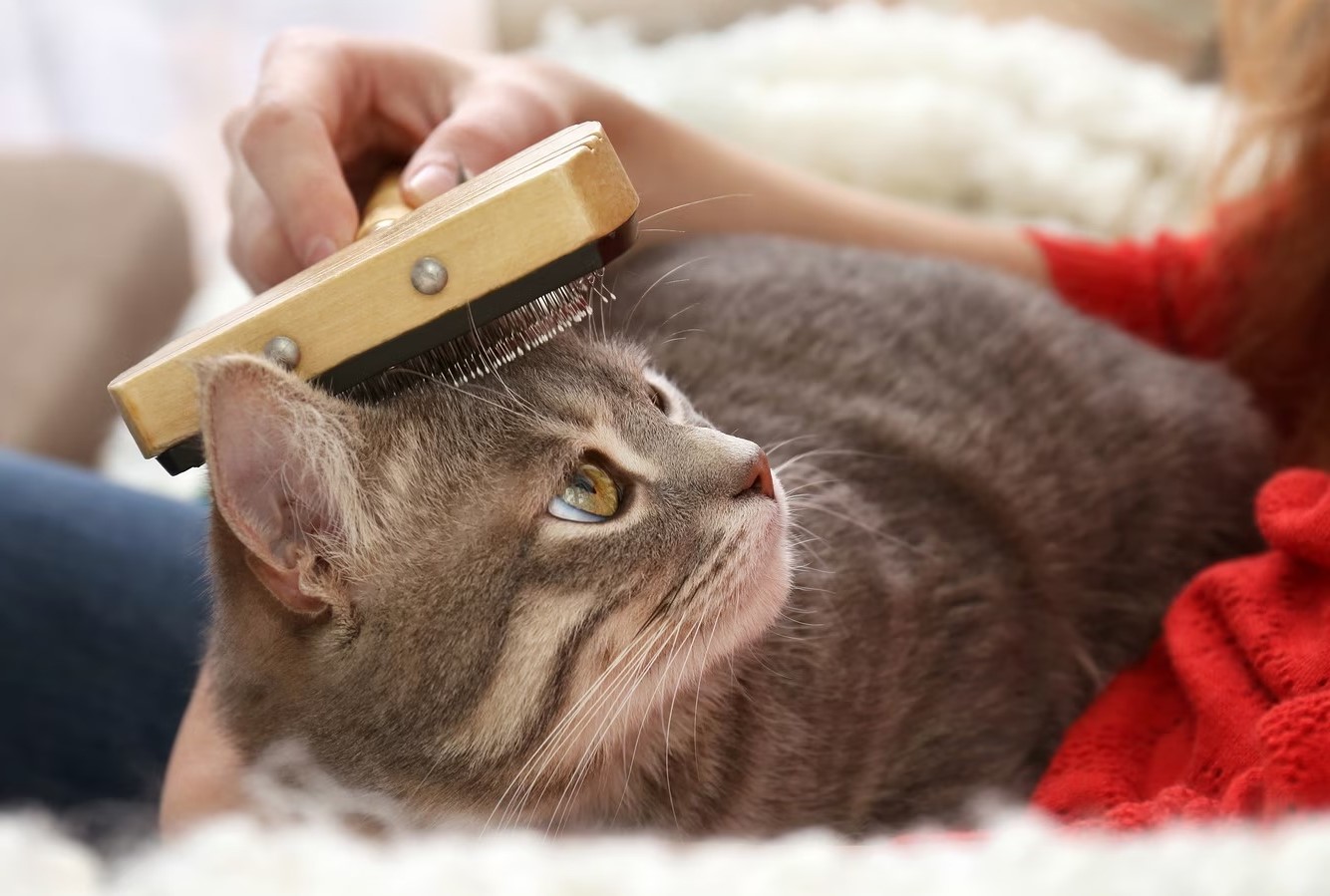Home>Pets & Animals>How To Handle A Cat In Heat


Pets & Animals
How To Handle A Cat In Heat
Published: March 7, 2024
Learn how to handle a cat in heat with our expert tips and advice. Keep your pets happy and comfortable during this challenging time. Ideal for pet owners and animal lovers.
(Many of the links in this article redirect to a specific reviewed product. Your purchase of these products through affiliate links helps to generate commission for Noodls.com, at no extra cost. Learn more)
Table of Contents
Understanding the Signs of a Cat in Heat
When a cat is in heat, her behavior and physical signs undergo distinct changes. Understanding these signs is crucial for cat owners to provide appropriate care and support. Here are the key indicators of a cat in heat:
-
Vocalization: A cat in heat becomes notably vocal, often producing loud, persistent yowls and meows. This vocal behavior is her way of signaling her readiness to mate.
-
Restlessness: Cats in heat display heightened restlessness and agitation. They may pace around the house, exhibit increased energy, and appear more eager to explore their surroundings.
-
Affectionate Behavior: During heat, a cat may become unusually affectionate, seeking more attention and physical contact from her owner. She may rub against people and objects, displaying heightened levels of affection.
-
Elevated Tail Position: When in heat, a female cat holds her tail to the side and elevates her hindquarters when stroked. This posture is a clear indication of her receptiveness to mating.
-
Excessive Grooming: Cats in heat may engage in excessive grooming, paying particular attention to their genital area. This behavior is a natural response to the hormonal changes they experience.
-
Spraying: Unspayed female cats in heat may exhibit spraying behavior, marking their territory with strong-smelling urine. This behavior is their way of attracting potential mates.
Understanding these signs is essential for cat owners to recognize when their pet is in heat. By being aware of these indicators, owners can provide the necessary care and support to ensure their cat's well-being during this natural biological process.
Read more: How To Install Cabinet Handles
Providing Comfort and Support for a Cat in Heat
When a cat is in heat, providing comfort and support is crucial to help her navigate through this challenging phase. Here are some effective ways to ensure your feline companion feels secure and at ease during this time:
-
Create a Calm Environment: Designate a quiet and secluded space for your cat to retreat to when she needs solace. This area should be equipped with familiar bedding, toys, and a comfortable resting spot to help alleviate her stress.
-
Offer Affection and Reassurance: Shower your cat with extra love and attention. Gentle petting and soothing words can provide her with a sense of security and comfort during this emotionally and physically demanding period.
-
Provide Distractions: Engage your cat in interactive play sessions to divert her attention from her hormonal urges. Interactive toys and activities can help channel her energy in a positive and stimulating manner.
-
Maintain a Consistent Routine: Stick to your cat's regular feeding and playtime schedule to provide a sense of stability and predictability. Consistency in routine can help alleviate anxiety and provide a comforting structure for your cat.
-
Comforting Scents: Introduce calming scents, such as pheromone diffusers or herbal remedies, to create a soothing atmosphere. These scents can help reduce stress and promote relaxation for your cat.
-
Ensure Safety Indoors: If your cat is an outdoor enthusiast, it's best to keep her indoors during this time to prevent unwanted mating and potential dangers. Providing a safe and secure indoor environment is essential for her well-being.
-
Consult with a Veterinarian: If your cat appears to be in significant distress or discomfort, seek advice from a veterinarian. They can offer guidance on potential calming techniques or, if necessary, medical interventions to ease her symptoms.
By implementing these supportive measures, cat owners can help their feline companions navigate through the challenges of being in heat with comfort and reassurance. Providing a safe and nurturing environment is essential for ensuring your cat's well-being during this natural biological process.
Preventing Unwanted Pregnancy in a Cat in Heat
Preventing unwanted pregnancy in a cat in heat is a crucial responsibility for cat owners. Taking proactive measures to avoid unplanned mating not only helps in controlling the feline population but also safeguards the health and well-being of the cat. Here are effective strategies to prevent unwanted pregnancy in a cat in heat:
Spaying and Neutering
Spaying (for female cats) and neutering (for male cats) are highly recommended to prevent unwanted pregnancies. Spaying involves the surgical removal of the ovaries and uterus in female cats, while neutering entails the removal of the testicles in male cats. These procedures not only prevent pregnancies but also offer various health benefits, including reducing the risk of certain reproductive cancers and curbing behavioral issues related to mating instincts.
Indoor Environment
Keeping a cat indoors during her heat cycle is an effective way to prevent unplanned mating. By providing a secure and controlled indoor environment, the likelihood of encounters with male cats is significantly reduced, minimizing the risk of pregnancy. This approach also protects the cat from potential outdoor hazards and ensures her safety during this vulnerable time.
Read more: How To Replace A Toilet Handle
Supervision and Separation
If a cat in heat resides in a multi-cat household, close supervision and separation from male cats are essential. Keeping the female cat in a separate area or using barriers to prevent direct contact with male cats can help avoid mating. Additionally, scheduling supervised playtime and feeding separately can further minimize the chances of unplanned pregnancies.
Hormonal Control
Consulting with a veterinarian about hormonal control options can provide additional support in preventing unwanted pregnancy. Hormonal contraceptives specifically designed for cats may be recommended in certain situations. It is important to note that the use of hormonal treatments should be carefully evaluated and administered under the guidance of a qualified veterinarian to ensure the cat's safety and well-being.
Vigilance and Awareness
Remaining vigilant and attentive to the cat's behavior and surroundings is crucial during her heat cycle. Being aware of potential mating opportunities and taking proactive steps to prevent them, such as keeping windows and doors closed to prevent escape, can significantly reduce the risk of unwanted pregnancy.
By implementing these preventive measures, cat owners can effectively manage and minimize the risk of unwanted pregnancy in a cat in heat. Prioritizing responsible pet ownership and taking proactive steps to prevent unplanned mating are essential for promoting the health and well-being of feline companions.
Seeking Veterinary Advice for a Cat in Heat
Seeking veterinary advice for a cat in heat is a crucial aspect of responsible pet care. While the heat cycle is a natural biological process, some cats may experience heightened discomfort or exhibit concerning symptoms during this time. Consulting with a veterinarian can provide valuable guidance and support to ensure the well-being of the cat. Here are essential considerations when seeking veterinary advice for a cat in heat:
Read more: How To Pet A Cat
Observation and Assessment
Upon noticing signs of heat in a cat, it is important to closely observe her behavior and physical condition. Documenting the duration and intensity of her heat cycle, along with any unusual symptoms or distress, can provide valuable information for the veterinarian. This observational data enables the vet to assess the cat's condition thoroughly and make informed recommendations.
Health Evaluation
A comprehensive health evaluation by a veterinarian is essential to rule out any underlying health issues that may exacerbate the cat's discomfort during heat. The vet will conduct a thorough physical examination, addressing any potential concerns related to the cat's reproductive health, overall well-being, and any specific symptoms she may be experiencing.
Behavioral and Emotional Support
In cases where a cat's heat cycle significantly impacts her behavior and emotional well-being, seeking veterinary advice can help in addressing these aspects. The veterinarian can offer guidance on behavioral modifications, environmental enrichment, and potential calming techniques to alleviate the cat's stress and anxiety during heat.
Medical Interventions
In situations where a cat experiences extreme distress or exhibits severe symptoms during heat, the veterinarian may recommend specific medical interventions to provide relief. This may include the administration of safe and appropriate medications to manage discomfort, reduce vocalization, or address any underlying medical conditions contributing to the cat's distress.
Read more: How To Draw A Cat
Spaying Consultation
For cat owners considering spaying their pet to prevent future heat cycles and potential pregnancies, consulting with a veterinarian is essential. The vet can provide detailed information about the spaying procedure, its benefits, potential risks, and the optimal timing for the surgery. This consultation allows cat owners to make informed decisions regarding their pet's reproductive health.
Preventive Care Discussions
Seeking veterinary advice for a cat in heat also presents an opportunity to discuss preventive care measures, such as spaying, vaccinations, parasite control, and overall reproductive health management. The veterinarian can offer tailored recommendations based on the cat's individual needs and lifestyle, ensuring comprehensive care beyond the immediate heat cycle.
By seeking veterinary advice for a cat in heat, cat owners demonstrate a commitment to prioritizing their pet's well-being and addressing any concerns related to the heat cycle. The expertise and guidance provided by a qualified veterinarian play a pivotal role in ensuring that cats receive the necessary support and care during this natural biological process.












